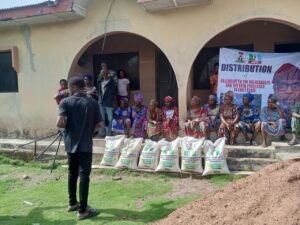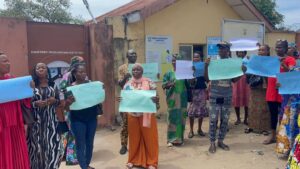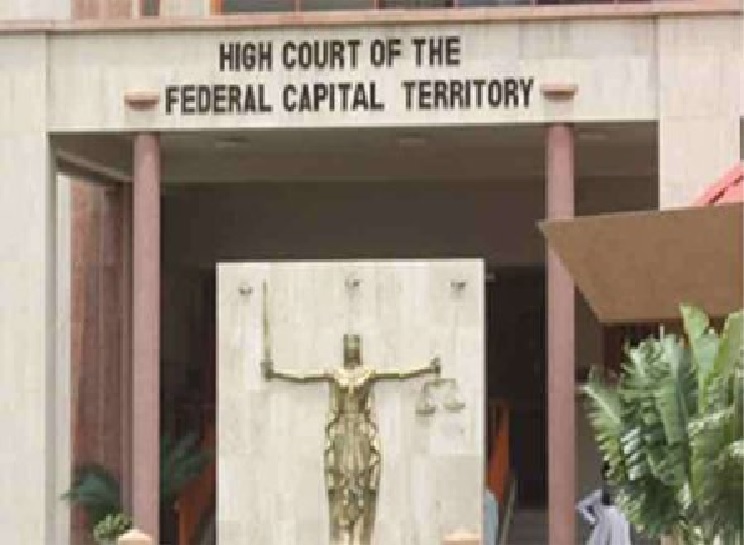OPINION
Intimate Affairs: Food for the gods

By Funke Egbemode
Kudi, fine-girl-no-pimples, was one of those undergraduates who lived their lives on their own terms on campus. Kay-girl, as she was fondly called, was an ‘aristo’ girl. Small-small boys were not her thing.
She liked them known and rich, politicians and business tycoons. The age or size of their bellies did not matter. They just needed to be loaded in their pockets, but if they were loaded ‘downstairs’ too, ah, that was an added advantage. Once, according to Kay-girl, she had ended up with a rich, fat ‘sugar daddy’ whose only load was in his pocket. You know those guys who God just blessed with deep pockets because they are neither good-looking nor finely shaped. Their pot-bellies also rob their third legs of length and strength. But they have money and they spend it like it’s from a river that cannot dry. So, their girls ignore their deficiencies and focus on their bulging pockets.Kudi lived the life, and upon graduation, she used her ‘contacts’ to get a good job, nice digs, and a fine ride. Then she met the most generous, good-looking, hot ‘sugar daddy’ of her life. Yes, he was hot everywhere, all over. Then came the warnings from everyone about the other part of Big Daddy (BD) that Kudi did not know.
The warnings threw Kudi. She was scared even, but she convinced herself that BD was her last bus stop. He loved her, and he loved him. In any case, what woman wants to share her man? Which wife wants to be promoted to ‘first wife’? No woman will willingly shift for another, including this Kudi. But she wanted the soft, baby life. She assured her close friends that she knew what she was doing and she would show the madam of the house that she was there to stay. Kudi soon moved into the beautiful home BD bought for her, in her name, too. She got pregnant soon after. Indeed, she got pregnant four times and had spectacular miscarriages. Her friends became really worried because the fourth miscarriage almost took her life. Kudi bravely assured them she would give BD children and laugh last.
True to her word, Kudi became pregnant again. When she made it to 36 weeks without miscarriage, her friends threw a big baby shower for her. Everybody thought the worst was over. Then, she woke up feeling feverish one morning, went to her doctor, and all the tests showed that she was no longer pregnant! Whaaat? Her tummy was still as huge as it was the day before. Kudi swore she could still feel the baby’s movement. All tests and scans insisted she was not pregnant after 36 weeks after she had bought all baby things and set up the nursery. Long story shortened, Kudi is still carrying around her ‘load’, four months beyond her EDD (Expected Delivery Date).
Methinks, BD’s wife is responsible for Kudi’s endless pregnancy. Superstitious much? Yes, but if you have another explanation for how Kudi landed this hard on a hard surface, I’m willing to give you space to propound your theory. For now, my conclusion is Kudi ate food meant for the gods, and now, she is stuck.
There are different types of meat, but not all meat is meant for all. Some are meant for the elders and are so not for ‘children’. Some are food for the gods and are therefore not for ordinary humans. Am I speaking in tongues? Let me explain.
Not all fine girls are available for all men. Not all dark, handsome, and rich men are for every Tinu, Toke, and Titi. Some girls are food for the gods. Some men are food for the gods. Those are the ones the Yoruba call ‘ounje agba’.
If a young man decides in his exuberant, nothing-go-do-me wisdom to eat food cooked, reserved and already served for the elders, he may lose his teeth or may not live to tell the story of the taste of the dish. We girls say it more frequently than men, especially when we want to scare off a poor or unserious suitor or toaster. We tell him what he’s salivating after is beyond his budding palate, that he is still ‘too young’ to dine at the table of elders.
‘This is food for your elders. Wait until you are fully grown.’
Women, we can be mean, seriously. May the Lord forgive us for all the times we have shot men in the knee on the field of ‘toasting’. Amen? Amen.
However, food for the elders, ‘ounje agba’ is very different from food for the gods. Food for the elders can lead you to the dispensary, but food for the gods will drag you to the mortuary. Note the word ‘drag’. Painful journey to Golgotha, that is what any ‘thief’ of sacred food can look forward to.
Take the case of the University of Calabar lecturer who was the toast of the internet recently for sexually molesting his students. A teacher of law who made it his mission to break the law. He deregulated his manhood and put his pen on the inkpot market, dipping, force-dipping, and blackmailing other people’s children to open their legs for his maggoty third leg. For years, according to reports, he was Satan’s representative in the Faculty of Law, a law unto himself. Tales of heartrending proportions about what he subjected those young girls to poured in from different platforms. And for what? His third leg must be a pygmy, his self-esteem non-existent if he needed to force himself on girls to feel good. Only sick men use their offices to force women to have sex with them. Only little men with no other gifts or attractive appeal use their positions to get girls to have sex with them. Since the story broke, I have swung from disgust to anger to revulsion and then vengeful anger. I know some people are talking about getting justice for the young women our dense dicky don traumatized, harassed and assaulted. I hope they succeed. For me, I don’t want him to go to jail. Sentencing the little dick of Calabar or putting him in a psychiatric ward would be doing him a favour. I do not believe in such 21st Century justice arrangement for men who sexually assault women. No. For instance, I am an advocate of ‘third leg amputation’ for rapists and child molesters. All that long drawn-out process and proceedings of lawyers using the same law book to both prosecute and defend rapists do not float my boat at all. For me, justice against a paedophile is taking away his weapon of terror. Totally and irreversibly!
For years, the sick dicky don of Unical ate every meat in sight. Indeed he forcefully snatched and ate every food. It didn’t matter to him if the owner wanted to give him the meal or not. Indeed, the more force he had to deploy, the more delicious the game. Until he ate the one meant for the gods. When he unwrapped that meal and devoured it like a possessed demon, little did he know it would be his last supper. He must have smacked his lips as he wiped the sinful sweat off his brow. Perhaps he even threatened the traumatised poor girl. Maybe he actually inflicted himself on more female undergraduates after eating the forbidden dish. But one thing was certain for the evil don. His career was over. When you Google his name 20 years from now, his messy sexual escapades will pop, not his academic prowess, not his intellectual contribution to human development. His name will now be synonymous with sexual harassment. I don’t even want to imagine the pains of all the folks who share his surname. That is what should happen to every lecturer who forgets how he laboured to achieve a PhD just because he has an erection.
But here is the real punishment I would have preferred for that randy lecturer. Just imagine that after the first time he forced himself on his victim, he loses his manhood. Close your eyes and picture it. He simply could no longer get it up, not even in the morning, not even with the missus. All he could do with his third leg was pee urine, only urine. Do you think if he ever recovered his virility he would harass his students, or any girl again? That is one of the ruinous things that happen to men when they eat food meant for the gods.
●Egbemode (egbemode3@gmail.com)
OPINION
August Protests: Rebellion, Rhetoric and Reproach
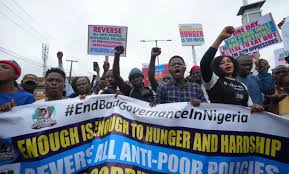
By Ayo Elebute
August 2024 protests created a hysterical atmosphere in Nigeria. The protests have proved the country especially difficult to govern subsequent to her birth defects on October the first 1960. The two sides effect of these August protests are highly visible and concrete; they opened a very significant channel of monitoring the peoples social milieu and they sent unclear and difficult message, hard to understand, before public audience.
The protests were not simply arbitrary outbursts of emotions; hatred, fear and anger were used as strategic plans to further individual and sectional interests. The protests have imaged the Nigerian society as a multicultural nation that evolved from a volatile history of military regimes that forcefully interchanged with civilian governments that have entrenched parallel political structures which remain firmly rooted and influential in our political landscapes.After emerging from authoritarian military regimes through multiparty structures of the second, third and fourth republics, Nigeria have successfully transformed into a fragile democratic architecture that makes decisions that can be protested by dozens of people at any given time.The supposedly key grounds for the August protests are the followings: (1) to fight the biting effect of the economy on ordinary citizens whose disposable income has been eroded overtime, (2) to raise the question of food inflation that stands at 40 percent in Nigeria (3) to fight the scourge of employment (4) to challenge the rate of economic insecurity and (5) to alert the stakeholders that kidnappings, terrorisms and banditries have pervaded the country.To a great degree, Nigerians want to live in peace. But because of insecurity, some citizens have lost their right of existence with unpleasant side effects. Basic commodities of living have turned to luxury and fuel price is in a state of constant flux and electric power is highly epileptic. In actuality, Nigeria is one of the largest exporters of petroleum products, but despite this, the fuel prices are not stable resulting from the epilepsy of the economy system.Above all else, the naira has maintained a downward slope in spite of all attempts to prop it up through policies and other available means. However, the ill-assorted motives and bad preparations for the so called August protests are indicative that Nigerians are ethnically divided over the choice of demonstration to use in registering their grievances against any ill-gotten government.There had been clear buildups of divided interest among notable opinion leaders and the mass society since the idea of the August protests was mooted and stood as topic of discussion for several weeks. The observable major problem that is facing the protest culture in our nation as of today is derivable from the fact that politics in Nigeria is highly contentious. The political occurrences over the years have made it difficult to settle the highly contentious relationships that dangled on all sides of our political existence, which hung down into the waters and most times placed under the ominous cloud of social unrest, mayhem, political impasse, political imbroglio, general insecurity, fear, distrust and breakdown of orders. These contentious relationships are highly obvious in our democratic culture which was berthed at the pier of conflict and confusion.Then, the existing rift among different ethnic groupings has exposed to sunlight the historical animosities and general political criminality as the society is still at the verge of seeking a viable political order that will result in the gain of better life for all. The state power has remained very great in arbitrary size, often violent, always threatening; and the political class is always seeking to obtain, maintain and sustain power by hook or by crook through patronage politics in which there are relationships between those who seek to gain and maintain political power as patrons and those who are used to achieve political power as clients.It was in this type of political logjam in which no progress seems possible that the political ethnocentric and patrons relied on promises of rewards and access given to political apologists who had brought about the idea of clandestine operation as political clients to rise in protests against bad governance in Nigeria.It is worthy of mention here and now that the August protests have generated a great deal of interest from ethnocentrisms in which each sectional group behaved differently; they failed to move out in one direction from a single point. This presupposes the fact that the protests may not lead to the desired goal of #Endbadgovernance. For instance, the youth from the northern part of the country led an armed insurrection in which they resultantly engaged in drastic measures, defacing valuable objects in public spaces; threatening to escalate the protests by responding rebelliously and putting up treasonous behaviour if that were the only way to get attention.However, the youth from the southern axis have adopted divergent approaches, views and attitudes towards the protests. There were divided pro-protester and anti-protester groups; there were racist rhetoric and angry rhetoric with propulsive forces. For example, the Igbo Must Go protest festered for days in Lagos while some groups among Yoruba youth, with intense feeling of euphoria, pointed at the Igbo tendency of being territorial and initiated massive protest of #IgboMustGo by mandating the Igbo ethnic group to leave and relocate their businesses from southwestern states.In reprisal for the tag line, some disgruntled elements among Igbo youth demanded to receive a pro-rata share of some spaces in Lagos by claiming that 99 percent of estates in Lagos are owned by Igbo traders and residents, and that all the swamps in Lagos were developed by the Igbo ethnic group while asking rhetorically: “How many Yoruba invested in such swampy areas?” Concerned citizens managed to douse the flame of this escalating tension with water by condemning those who have taken undue advantage of the protests to threaten other sections of the country, reiterating that there is no room for ethnic bigotry in the Nigerian territorial space. Accusations and condemnations made it trickier to manage further discussions between protesters and the government. The conduct of protesters across the country has brought reproach to the reasons and the motives of the expostulations and the situation of these August protests has become an official letter of reprimand for acting beyond bounds as the protests have been criticised as blameworthy. In case of another time, the protesters should align the language of protest with dialogue and not with violence because citizens’ engagement with politics must be an expected part of democracy and not a threat to democratic process.Speaking earnestly, the 10 days of #Endbadgovernance protest indicates a widespread public discontentment towards Nigeria’s economic mess, but going by the current economic situation, the average Nigerian cannot endure endless protests. In this struggle, therefore, the poor masses must be treated considerately.The protesters must made their points very obvious in one way or the other through the obvious unorganized massive turnout. Then, the congress of protesters has taken a final decision by calling for suspension of demonstrations. It should be assumed that a very loud cry and evocative message had been sent to the people in power and if they collectively fail to cut down the cost of governance, stop wasteful spending and tighten their individual belts or lead by showing good examples then another room may probably be created for protesters to re-strategize, to regroup, to reinvent and to rejig, and to create inclusive working groups that can call the government to order again at the rate of speed.Elebute, Professor of Journalism, Media and Cultural Studies, writes in from Hallmark University, Ogun State.OPINION
Increased Revenue Allocation to States: How Impactful? – NAN Survey

In the wake of fuel subsidy removal by President Bola Tinubu, the monthly disbursement to the three tiers of government by the Federal Account Allocation Committee (FAAC) increased significantly.Based on statutory sharing formula, the Federal Government receives 52.68 per cent of the total sum while the States and Local Government Areas (LGAs) receive 26.
72 per cent and 20. 6 per cent respectively.The monthly allocation, particularly to states and local governments, is meant to fast track execution of viable economic and social infrastructure development projects at the grassroots. The allocation, which is readily available monthly, is expected to cushion the impact of the economic crunch and promote people-oriented programmes to improve overall wellbeing of the people.With the jettisoning of fuel subsidies which had cost the nation’s treasury over 10 billion dollar annually, more funds are, thus, made available by FAAC to the states.A survey conducted by the News Agency of Nigeria (NAN) in Bauchi, Jigawa and Gombe states, however, reveals that the citizens are yet to feel the impacts of the increased allocation, especially in mitigating the effects of fuel subsidy removal.The 2023 States’ Annual Report of FAAC, obtained by NAN reveals that, from January 2023 to May 2023, pre subsidy removal, the 36 states received a total net allocation of N1.19 trillion.The reports, obtained from Nigeria Governors’ Forum Repository, shows that from June to December of the same year, when President Tinubu removed fuel subsidy, the FAAC disbursement to the 36 states doubled.Specifically, the net allocation received within the period of June 2023 to December 2023, by the 36 states rose from N1.19 trillion to N2.31 trillion, an increase of about N1.12 trillion.Similarly, between January 2024 and June 2024 FAAC disbursed a total sum of N2.16 trillion to the 36 states.It is worthy of note that the funds captured above, excluded the 20.6 per cent federal allocation to the 774 LGAs, which was also paid to the states via joint account of the two tiers.Some residents of the three states, who spoke to NAN in separate interviews in Bauchi, Dutse and Gombe decried poor management of the funds by the respective state government.They said the increased funds were yet to translate into meaningful results in mitigating impacts of the fuel subsidy removal and alleviating their sufferings.Mr Rambi Ayala, Chairman, New Nigeria Peoples Party (NNPP) in Gombe State, said the citizens were passing through untold hardship in spite of the increased federal revenue allocation to the state running into billions of Naira.He said, although FAAC allocation to Gombe had doubled since the new administration came into power, there were no enhanced social services across the stateNAN reports that Gombe state, which received the least among the 37 states, got gross allocation of N78.72 billion from FAAC for the year 2023.Deduction from the statutory was N17.28 billion bringing its net allocation for the year to N61.43 billion.From the N61.43 billion net allocation to the state for the year, the pre-subsidy removal months of January to May 2023 accounted for N20.46 billion.With subsidy removal, the net allocation to the state from June to December, same year doubled to N40.97 billion an increase of N20.51 billion.On year over year comparison, from January to June 2023, the net FAAC allocation to Gombe was N25.6 billion which rose to N42.8 billion within the same period in 2024, an increase of N17.2 billion.Ayala alleged lack of transparency and prudent management of the funds by the government stressing that people are being impoverished even in midst of plenty.“A lot needs to be done in the state. For example, in my own area, Billiri LGA, I haven’t seen any significant projects since the ending of fuel subsidy.“The general hospital in Billiri is in terrible condition, with critical facilities in disrepair, and people have no idea how the funds are being used.“Also, we are in the farming season, yet, there aren’t enough inputs and equipment being provided to improve production and livelihood of farming communities,” he said.Ayala also alleged that palliatives meant for all Nigerians are often used to reward party loyalists.“In Gombe state, there is no clear formula for distributing the palliatives, to include the opposition.“This is particularly troubling because hunger doesn’t discriminate base on party or religion,” he said.Rabiu Babayo, a commercial motorcyclist, accused the state government of insensitivity and lack of commitment to addressing the challenges of the people.Babayo said government increased taxes on trades and services without recourse to the impacts on the people and businesses.Also, Ibrahim Yusuf, Chairman, Gombe Network for Civil Societies (GONET), said the state government has not initiated programmes and projects that would directly impact the people and ameliorate their sufferings“What we want the government to focus on is, human capital development and empowerment that will yield quick results,” he said .The situation is not different in Jigawa, where citizens alleged that the state government initiated white elephant projects at the detriment of the citizens.They alleged that the billions on Naira accruing to the state monthly from FAAC is not being used for people oriented projects and programmes.NAN reports that Jigawa state’s gross allocation from the Federation Account for the year 2023 amounted to N95.03.billion. Deduction from statutory was N3.39 billion bringing its net allocation for the year to N91.64 billion.From the N91.64 net allocation to the state for the year, the pre-subsidy removal months of January to May 2023 accounted for N32.86 billion.With the removal of subsidy, the net federal allocation to Jigawa from June 2023 to December 2023 rose to N58.68 billion, an increase of N25.72 billion.From January 2024 to June 2024, Jigawa received total net allocation of N60.14 billion, an increase of N20.11 billion when compared to N40.03 billion received within the same period in 2023Yau Garba, a resident of Dutse said the citizens expected the increased allocation to be deployed to agricultural projects, the economy mainstay of the the state.He said the government also failed to prioritise road and other infrastructure development for sustainable social and economic development of the state.“In the last one-year, Gov. Umar Namadi has travelled to many countries on the claim of understudying modern agricultural transformation methods.“His administration, however, has not justified the benefits of his adventures,” he said.A farmer in Kiyawa, Mohammed Aliyu said feeder roads leading to farm settlements in the states are in deplorable condition.“The fertilisers and seedlings distributed by the state government did not get to farmers, the direct beneficiaries.“The tractors brought to rural farmers are old and our people cannot afford to pay for the services.“Is this the agricultural transformation?“It is important for the government to embark on projects that will have direct impacts on the lives of the people,” he said.The resentment is not different in Bauchi, where Sabo Mohammed, a Chieftain of the All Progressives Congress (APC), said the government was economical with the truth on the actual amount that accrued to it from the federation account.He stressed the need for the state government to keep people informed on the amount being received from the federation account on monthly basis.According to him, such disclosure would ensure transparency, accountability and probity in the management of the funds towards achieving good governance.NAN reports that Bauchi state’s gross allocation from the Federation Account for the Year 2023 amounted to N98.422 billion. Deduction from statutory was N23.99 billion, bringing its net allocation for the year to N74.42 billion.From January to May of same year, which was subsidy regime, the net allocation to Bauchi state was, N25.26 billion.With the removal of subsidy, the net allocation to Bauchi state from FAAC between June and December 2023 rose to N49.16 billion, an increase of N24.10 billion.Also, from January 2024 to June 2024, Bauchi state received total net allocation of N46.80 billion, an increase of N15.08 billion when compared to N31.72 billion received within the same period in 2023.Mohammed queried what the state government was doing with the increased accrual from the federation account courtesy of subsidy removal.“In Bauchi state, there seem to be dis-connect on engagement between the government and its citizens.“We were told that the ongoing roads and flyover projects in the state were being financed with N100 billion World Bank loan.“We were also told that the Rural Access and Agricultural Marketing Projects (RAAMP) that will fast track the construction of 115km access road were also being funded by the World Bank and French Development Agency with a total cost of N23.3 billion.“What then has the state done with the humongous allocations received from the federal government?” he queried.It would be recalled that the Bauchi State government announced that the state secured N100 billion loan for infrastructure development.The state’s Commissioner for Information and Communication, Mr Usman Garba had said that the N100 billion loan was earmarked for the construction and rehabilitation of 200 kilometres of roads across the state.The commissioner had also said that two flyovers at the busiest areas of Wunti and Central Market in Bauchi metropolis were part of the projects.The APC chieftain, however, said that the state government must come out clean to explain to the citizens what they were using the huge allocation from FAAC for.In defense of the allegations, however, Ibrahim Galadima, the Commissioner for Works and Transportation, said the state is investing heavily on infrastructure and other laudable projects and programmes touching the lives of the citizens.According to him, Gov. Bala Mohammed approved the rehabilitation of 29km Adamami – Disina -Jama’are road at N6.8 billion and the Bayara township road at a cost of N737 million.He said the upgrading of the Emirs’ palaces in Bauchi, Jama’are, Ningi and Dass were undertaken at the cost of N2.2 billion.Equally, he said the Bauchi government planned to spend N25 billion on the upgrade of the Special Hospital, Bauchi, to enhance access to quality healthcare service delivery in the state.Galadima said the construction of the Sharia Court of Appeal in Bauchi metropolis would gulp N606 million.‘This is the first time in the history of the Bauchi state that the rural areas are receiving an unprecedented attention in road construction to the tune of over N23 billion,” he said.On his part, Mr Ismail Uba-Misili, Director-General, Press Affairs, Government House, Gombe, said the administration of Gov. Inuwa Yahaya has been utilising funds accruing from the federal allocations to deliver good governance and lessen the burden of economic hardship on the people.He said that funds received from the federation account were being channeled to services that have direct bearing on the lives of the residents of the state.The governor’s aide said the state government expanded various programmes to ease the burden on the citizens and drive inclusive development.“The projects and programmes being implemented by Gombe state government are not only helping to alleviate current economic pressure, but also laying the groundwork for sustainable development and long-term prosperity in the state.“We have also rolled out palliative measures, including the distribution of food and non-food items to the most vulnerable segments of the population.“This effort is targeted at providing immediate relief to the hardest hit by the economic challenges” he said.Uba-Misili added: “Understanding the critical role of agriculture in the state’s economy, the government made subsidised fertiliser available to farmers at a 50 per cent discount.“This initiative not only supports food security but also helps farmers to reduce production costs, thus boosting agricultural productivity and profitability,” he said.He listed other interventions to include payment of wage award to civil servants, gratuity arrears to pensioners, bursary awards, youths and women empowerment, and support to people with special needs.When contacted for the state’s position, the Jigawa state’s Commissioners for Budget and Economic Planning, Alhaji Babangida Umar declined comment.Alhaji Auwalu Sankara, the state’s Commissioner for Special Duties, who is also in charge of distribution of palliatives also declined talking to the media.Sankara neither answered calls placed to him by our correspondent nor responded to sms messages, on how the 20 trucks of rice palliative from the federal government were distributed to the people.(NANOPINION
Obaseki’s Failure and Urgent Need for Good Governance in Edo State
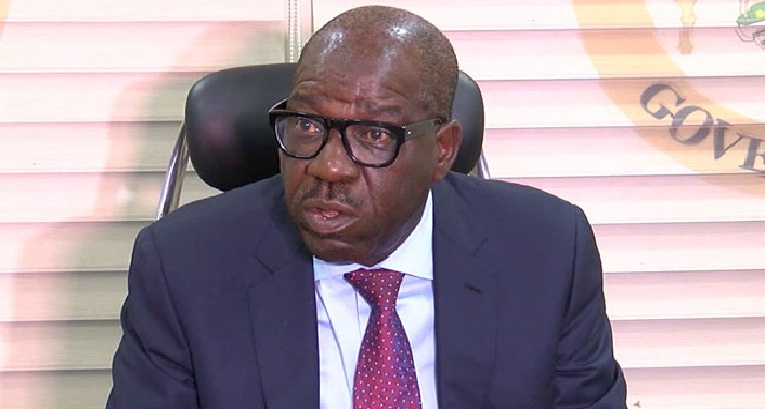
By Augustine Osayande
As the September 21 gubernatorial election approaches, I feel compelled to address the urgent issue of governance in Edo State. My concerns have been intensified by recent news: “Benin Group Issues Ultimatum to Obaseki, Demands Apology to Oba of Benin” and “200 Members of Governor Obaseki’s Family Defect to APC, Endorse Okpebholo for Governor.
” These reports highlight the growing discontent with Governor Godwin Obaseki’s administration.While poor governance is not unique to Edo State, Governor Godwin Obaseki’s administration has been particularly disappointing. His tenure has been characterized by unfulfilled promises and significant lapses in leadership, positioning him as a notable example of ineffective governance.
Compared to his peers, his administration’s failures are especially stark, making him one of the most prominent figures among underperforming governors.It is not surprising that the most recent damning verdict showing the woeful performance of Governor Godwin Obaseki for the past eight years is coming from his immediate family. According to the news report, the Agho Obaseki’s family in Edo State announced their decision to abandon the Peoples Democratic Party (PDP) and throw their support behind the All-Progressives Congress (APC) candidate, Senator Monday Okpebholo, for the upcoming gubernatorial election.
Osaro Obaseki, a prominent figure within the Obaseki clan, revealed the reasons behind their dramatic decampment. “We have stood by our brother, Governor Godwin Obaseki, since 2016. However, his administration has failed to deliver on the promises made to the people of Edo, and we can no longer support him, especially when he intends to bring and foist his replica on us,” Osaro stated, expressing the family’s disillusionment with the current state of affairs in the state.
The Obaseki family, which numbers over 200 members, voiced their dissatisfaction with the perceived neglect of crucial infrastructure and the lack of respect shown to traditional institutions, including the Oba of Benin. “We believe that Senator Monday Okpebholo has the vision and commitment to turn things around for the better. His track record and dedication to the people of Edo have convinced us that he is the right leader to guide our state forward,” Osaro Obaseki added.
Again, just before his family verdict, concerned People of Benin Nation (CPBN) issued a seven-day ultimatum to Obaseki, demanding a public apology to the Oba of Benin, Omo N’Oba N’Edo Uku Akpolokpolo, Oba Ewuare II, for what the group described as “sacrilegious disrespect” to the Benin throne.
In a press statement issued on Tuesday by Prof. Amen Uhunmwangho, and co-signed by prominent figures, including Dr. Jacob Abusomwan, Barr. Osarenkhoe, Leftist Agho Omobude, Mr. Iyamu Osaro Culture, Comrade Eseosa Omoregbee, Chief Omuemu Etinosa, Chief Friday Omoragbon, and Rev. Osamuyimen Isibor, the group demanded that the apology be published in at least three national newspapers.
The CPBN, representing a wide, cross-section of Edo State residents, also outlined several other demands, including an immediate halt to the construction of a museum intended for repatriated Benin artefacts, which they asserted was being undertaken without the Oba’s consent.
They also called for the withdrawal of lawsuits allegedly filed by certain Enigie against the Oba, the reallocation of lands whose Certificates of Occupancy were revoked by the governor, and the return of communal land they claimed were illegally acquired by the state government.
The group is advocating the payment of salaries and allowances to 14 Edo State House of Assembly members who have been prevented from taking their seats for the past four years, in what they described as unconstitutional actions by the state government. The CPBN’s demands reflect a growing discontent with the governor’s actions, which the group believed had undermined the Benin Kingdom and its people.
In evaluating the numerous controversies surrounding Governor Godwin Obaseki, it is essential to start with his actions that contradict the very principles that facilitated his rise to the governorship of Edo State. Democracy, widely regarded as the most effective form of governance, derives its legitimacy from the people, with the legislature serving as its essential safeguard. The constitutionally enshrined principles of checks and balances require the three branches of government to function independently and harmoniously for the benefit of the populace.
Governor Obaseki, in a troubling display of disregard for democratic norms, obstructed the inauguration of 14 duly elected members of the Edo State House of Assembly in 2019. This act, which remains a documented breach of democratic process, significantly harmed the people of Benin, as 10 of the excluded members represented the Edo South Senatorial District, including the elected representative of the governor’s own Oredo East Constituency, Hon. Chris Okaeben. Consequently, the Benins were reduced to a minority in the House, with only four members. This undemocratic exclusion deprived millions of Edo citizens of representation for four years, during which governance in the state was marked by an unchecked and unbalanced consolidation of power by the governor.
This pattern of governance has continued, with two members of the Edo State House of Assembly—Hon. Emankhu Addeh and Hon. Ojeme Donald Okogbe—recently suspended from the House without due process, further depriving their constituencies of effective representation. Such acts of oppression, exclusion, and intimidation have marred Edo’s recent history.
Furthermore, Governor Obaseki has repeatedly undermined the progress of prominent Benin citizens by allegedly sponsoring protests against their appointments to significant positions, such as the nomination of His Excellency, Rt. Hon. Pius Odubu, and Chief Victor Ekhator for leadership roles within the Niger Delta Development Commission (NDDC) in 2019. This, along with other actions, reflects a pattern of hindering opportunities that could have brought substantial development to Edo State.
The abandonment and destruction of critical state infrastructure, such as the Benin storm water project and the Ekehuan road project, further highlight the administration’s failure to prioritize the welfare of Edo citizens. Governor Obaseki has also been accused of demolishing long-standing public institutions like the specialist hospital on Sapele Road and the Institute of Continuing Education, replacing them with private ventures.
In the lead-up to the 2020 gubernatorial election, the governor’s alleged indifference to assassination attempts on political opponents and his persistent conflicts with the Benin traditional institution, particularly his attempts to interfere with the repatriation of Benin artefacts, have further estranged him from the people he is supposed to serve.
The governor’s actions have also included the demolition of property in Oke-Oroma Community, despite a subsisting court order, and the allocation of vast forest reserves to private entities, often at the expense of local communities and without transparent benefits to the state.
Governor Obaseki’s administration has been marked by what many perceive as a series of high-handed actions against individuals and communities, including the revocation of land titles and the demolition of property belonging to prominent citizens, often on grounds seen as politically motivated.
In conclusion, the people of Edo State are urged to critically assess the character of those who seek to lead them, especially as the next gubernatorial election approaches. It is vital to resist choices that could lead to further hardship and regression for the state. The resilience of the Edo people and their commitment to democratic principles should guide their decisions in this crucial period.
Augustine Osayande, PhD contributed this piece from Abuja via austinelande@yahoo.com











